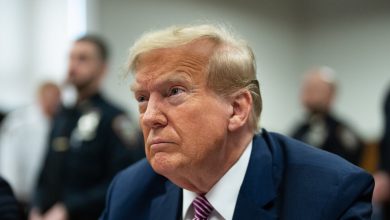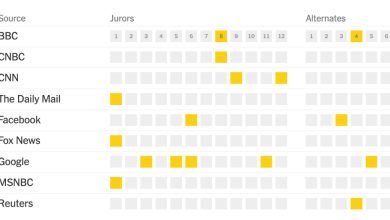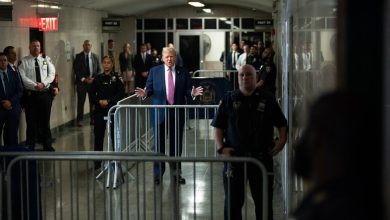America Has No Official Language. Instead It Has Hundreds.

Nearly 400 years ago, Walloon-speaking religious refugees from near what is today roughly the French-Belgian border arrived in a Lenape-speaking archipelago, marking the colonial founding of Manhattan as we know it. Ever more global waves of migration have arrived since, enriching the city not just in practical ways, but also adding to its cultural and artistic texture. Today New York City is the most linguistically diverse urban area in the world.
Now Donald Trump is warning about this linguistic diversity, arguing that New York’s classrooms are overwhelmed by foreign students who speak obscure languages. “They have languages that nobody in this country has ever heard of,” Mr. Trump said, referring to migrants who have recently arrived. “It’s a very horrible thing.”
It’s true, as he suggested, that we don’t have instructors for most of the world’s more than 7,000 languages, so poor is our ability to teach, learn or translate them. But why did Mr. Trump deem this “a very horrible thing,” and not a call to arms for more research and more language teachers? What could make languages — gloriously various natural experiments in human cognition and communication — so frightening?
There are many practical benefits to be found in the knowledge, wisdom and poetry of the languages that immigrants bring with them. A growing body of research has found that linguistic diversity can be good not only for a child’s overall development, but also for their health. The presence of these languages and their speakers continually revitalizes the profound social experiment that is America. We can and should learn how to communicate with them.
But when it comes to languages spoken by immigrants from far-flung places — some primarily oral and used by a small minority — it’s not as simple as hiring more language teachers, or for-profit translation companies. What is needed first is basic research, including documentation by linguists and language communities working in partnership and developing resources like dictionaries and online language archives.
The United States has never had an official language. While English is the de facto lingua franca, it is not standardized in the way France has enshrined Parisian French, or China has promulgated a certain kind of Mandarin. We have our own long history of discriminating against or treating people who speak other languages unfairly, whether the stamping out of Native American languages in residential schools, or punishments for students speaking Spanish in public schools or bias against African-American English. But only since the 1980s have states, driven by a Spanish-fearing, English-only movement that prefigured Mr. Trump, started enshrining English in their constitutions.



